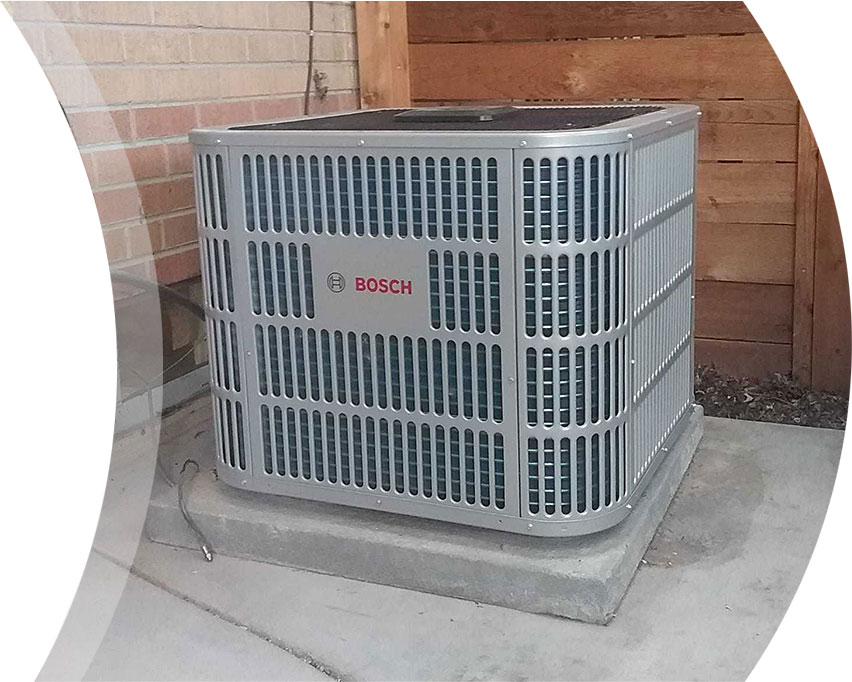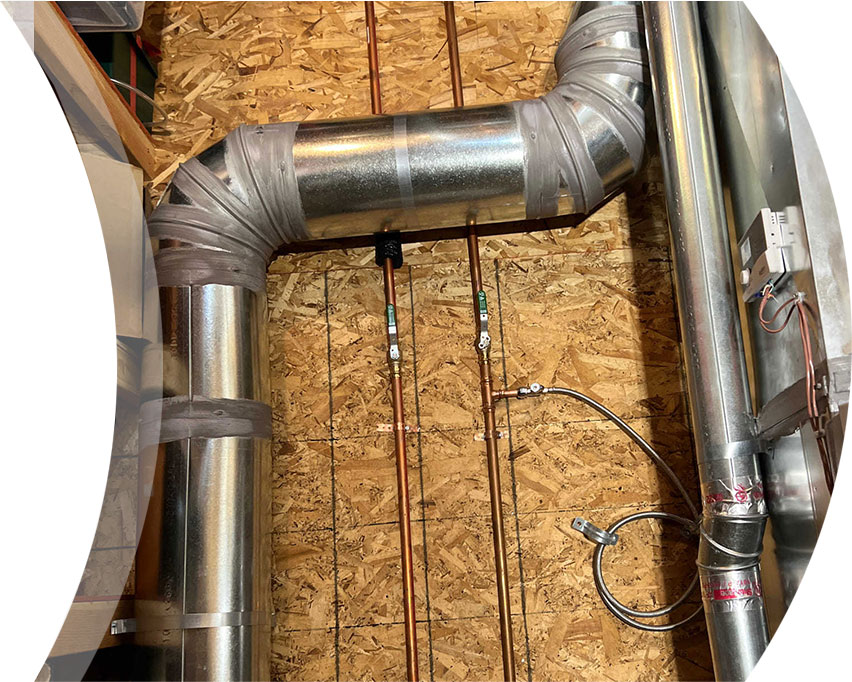“Abe's Heating and cooling were professional and on time. they helped me with two time sensitive projects and did excellent work. I know who I'll be calling if I should ever need an HVAC technician.”
Air Source Heat Pumps

Installation, Repair, & Maintenance
If you’re looking for an energy efficient way to heat and cool your home, an air-to-air heat pump might be the solution you’re looking for. Unlike traditional HVAC systems, heat pumps transfer heat rather than generate it, making them a highly efficient option. Despite their name, they can both heat and cool your home. The main benefits of a heat pump include:
For air source heat pump installation, repair, and maintenance in the Denver Metro Area and outlying areas, call ABE Heating and Cooling at (303) 341-5701.
1
During the winter months, heat pumps extract heat from the outside air or ground and transfer it inside your home.
2
In the summer, the process is reversed, and heat pumps extract heat from the inside of your home and transfers it outside.
3
The main components of a heat pump include a compressor, an evaporator, a condenser, and a refrigerant.
4
The compressor pumps the refrigerant through the system.
5
As it passes through the evaporator, it absorbs heat/coolness from the outside air or ground.
6
The refrigerant is then compressed and sent to the condenser, where it releases the heat / cool air into your home.
The biggest benefit of a heat pump is its energy efficiency. Since heat pumps transfer heat instead of generating it, they use less energy to heat or cool your home. This can result in significant cost savings on your energy bills, especially during extreme weather conditions.
Heat pumps can be used for both heating and cooling, making them a versatile option for year-round comfort. In the winter, they extract heat from the outside air and transfer it indoors to warm your home. In the summer, they extract heat from inside your home and transfer it outside to cool your home.
Heat pumps filter the air as they circulate it, removing dust, dirt, and other allergens from the air. This can improve indoor air quality and reduce the risk of respiratory problems such as asthma and allergies.
Heat pumps are generally quieter than traditional HVAC systems, making them a great option for those who value peace and quiet. They don’t have noisy fans or compressors that can disrupt your daily activities or disturb your sleep.
Heat pumps are durable and long-lasting, with an average lifespan of 15-20 years. Regular maintenance can help extend their lifespan even further, making them a wise investment for your home.
Heat pumps are an environmentally friendly option for heating and cooling your home. They use less energy than traditional HVAC systems, reducing your carbon footprint and helping to protect the environment.
Air source heat pumps offer many advantages over traditional heating and cooling systems.
There are several types of heat pumps, including air-source, ground-source, and water-source.
Air-source Heat Pumps
Air-source heat pumps are the most common, and they work by extracting heat from the outside air.
Ground-source Heat Pumps
Ground-source heat pumps, also known as geothermal heat pumps, extract heat from the ground through a series of underground pipes.
Water-source Heat Pumps
A water source heat pump uses the heat energy from water to provide heating and hot water for your home. It extracts energy from the water and turns it into heat.
Heat Pump Water Heaters
In addition to heating and cooling your home, heat pumps can also be used to heat water. This is known as a heat pump water heater, and it works by extracting heat from the surrounding air and transferring it to the water.
Call ABE Heating and Cooling today at (303) 341-5701 if you would like to find out which heat pump would be best for YOUR home.

If you’re thinking about purchasing and installing an air source heat pump, you’ll need expert advice before you proceed. At ABE we can answer all your questions about heat pumps and heat pump technology, and we’ll help you identify the best option for your home. Depending on factors such as climate, soil conditions, the system features you choose, and available financing and incentives, you may recoup your initial investment in two to ten years through lower utility bills.
If your heat pump is over 15 years old and you’re having issues with your system, it may be time to think about getting a replacement. Our certified technicians will discuss the problems you’re facing and conduct a thorough examination of your system to determine the issue. If we determine that you need a new heat pump, our technicians will suggest the most energy efficient and high-quality option that’s suitable for your home.
Your heat pump may be in need of service if it is:
You should have your heat pump serviced by a professional technician once a year. At ABE Heating and Cooling, we provide the following: